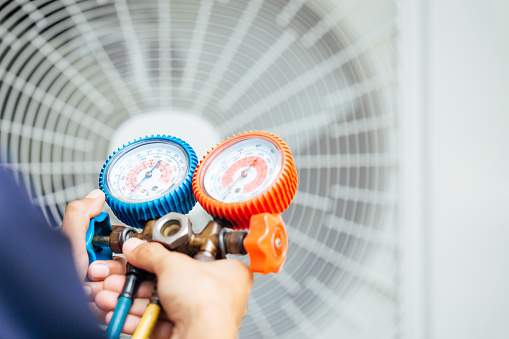This tutorial will teach you all you need to know about Goodman air conditioners so you can make the best decision for your future cooling or heating equipment!
Let’s start with basic facts and then move on to the numerous types of air conditioners on the market.
Air conditioners are among the most often used electrical appliances in American homes. Air conditioners of one kind or another are installed in over 75% of households. According to data compiled by the US Department of Energy, air conditioners account for around 6% of total electricity generated in the country. When we translate this usage into monetary terms, we get a whopping $29 billion.
Let’s look at what it takes to buy a new air conditioning system or replace an old one now that we know how much money is spent on powering different types of air conditioners.
The air conditioning unit is a necessary component of any home and consumes a significant portion of your must-have home appliance budget. Making the appropriate decision is critical since it affects your home’s cooling, comfort, and energy usage. There are various sorts of air conditioners, each with its own set of advantages and disadvantages.
Let’s take a closer look at the different types of air conditioners on the market so you can make an informed selection about your next air conditioning system.
- There are eight different types of air conditioning units available on the market. Each type of air conditioner is made for a certain place and serves a specific purpose. The following are the various types of air conditioners:
- Air Conditioning (Central)
- Ductless Window Air Conditioner (Mini-Split)
- Air Conditioner on Wheels
- AC that is mounted on the floor
- Dual-Fuel Air Conditioner (Hybrid/Dual-Fuel)
- Air Conditioner with Intelligence
- Geothermal Heating and Cooling
- What Are the Most Important Factors to Consider When Choosing the Best Air Conditioner for Your Home?
- Now that we’ve learned about the different types of air conditioning systems on the market, it’s time to choose the ideal one for your home. The following are the most crucial variables to consider:
The most important factor in deciding on an air conditioning system for your home is your budget.
The following is a budget-friendly rating of AC system types. From the bottom to the top:
- Window air conditioners and portable air conditioners are the cheapest solutions available. Keep in mind that these sorts of air conditioners can only cool a single room at a time.
- If you only need to chill one or two rooms, a ductless air conditioner or a mini-split air conditioner is a good choice. If you choose to chill your entire home with a single ductless system, you’ll have to keep it running all of the time, which will increase your energy expenditures while also decreasing its efficacy. The most important factor in deciding on an air conditioning system for your home is your budget.
- The following is a budget-friendly rating of AC system types. From the bottom to the top:
- Window air conditioners and portable air conditioners are the cheapest solutions available. Keep in mind that these sorts of air conditioners can only cool a single room at a time.
- If you only need to chill one or two rooms, a ductless air conditioner or a mini-split air conditioner is a good choice. If you choose to chill your entire home with a single ductless system, you’ll have to keep it running all of the time, which will increase your energy expenditures while also decreasing its efficacy.
- Energy Consumption
Invest in an energy-efficient air conditioning system to help you save money on your power bills. The EER rating is another name for the energy efficiency ratio. It’s crucial to double-check so that the most cost-effective choice can be considered. The system is more efficient if the rating is greater. The Seasonal Energy Efficiency Ratio is another roughly related statistic. The cooling output of a unit is divided by the total electric energy input over the same time period to determine its SEER rating.
Although the SEER rating may appear to be similar to the EER, the distinction is that the SEER is computed over a long cooling season at many temperature points, whereas the EER is only calculated at a single temperature point.
If you want to reduce your AC costs, have a look at super easy ways that can help you slash your bills while maintaining the comfort of a perfect temperature! Choose the best home HVAC brands company for air conditioners.
Hi, I am Adam Smith, Admin Of TechSketcher, Creative blogger and Digital Marketer.
